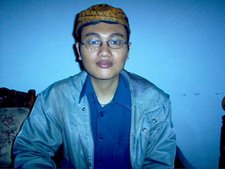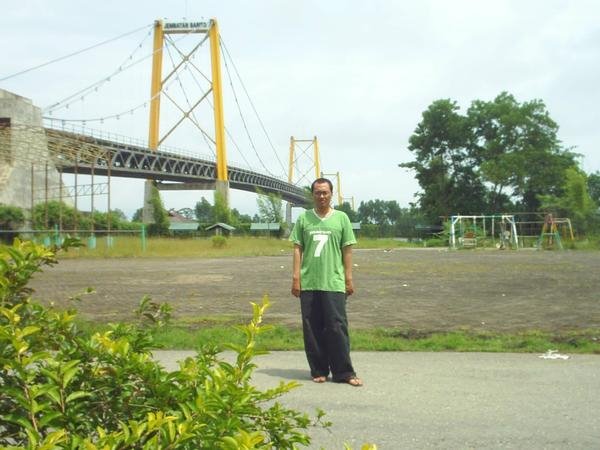Monday, November 12, 2012
In the District, a same-sex couple’s adoption success story
http://www.washingtonpost.com/local/in-dc-a-same-sex-couples-adoption-success-story/2012/08/02/gJQAP9O9RX_story.html
By Petula Dvorak, Published: August 3
This is a story about judgments and the many ways people can surprise us.
It begins a couple of years ago, when I was covering a conference for gay and lesbian parents.
I met a gorgeous couple who looked more like models in a a Polo ad than parents.
“Do you have kids?” I asked, dubious because, really, no one looks that good when they have children.
“No, but we’re interested in adopting. Or maybe becoming foster parents,” Kelly Vielmo told me.
Foster parents? I wondered what, exactly, these two impeccably groomed men thought foster parenting — any parenting — was like. We said goodbye, and I moved on to other interviews.
Two months later, I saw an interesting post online on a parenting discussion group.
“This morning on the Metro two different people whispered to me that I needed to get my foster daughter’s African American hair maintained. (She is 5?1 / 2 years old.),” wrote Kelly, one of the glamo-guys I met at the conference. “Can anyone on this listserv offer suggestions as to where we can go?”
Whoa. They did it. He and his partner, Jack Montgomery, became foster parents. And I regretted being so dismissive of them.
A year or so later, I got an e-mail from them, inviting me to their wedding. And right before they tied the knot, they were planning on finalizing the adoption of three children, ages 2, 3 and 6.
Read Montgomery’s wedding toast: To family
Double, wait, triple whoa. They did it!
They had an adoption ceremony in a D.C. courtroom, with about 40 people attending. The girls, Raine and Ravyn, were in matching dresses, and Cardel was dressed up, clip-on tie in place. Their priest came to bless the ceremony.
After it was all done, the judge stepped down and hugged everyone.
I’d already been to their Capitol Hill townhouse to meet the kids. The living room was filled with games, puzzles, desks and books.
The kids spilled out of Kelly’s car; he had picked them up from camp, and Jack was home making tortellini, chicken and broccoli.
The dinner hour with three small children was remarkable for its calm.
Jack was honest: “Well, a year ago, someone would’ve been on the floor crying.”
“Maybe one of us,” Kelly shticked.
What’s a family without some tears?
Forming their family wasn’t easy.
The older siblings, Raine and Cardel, came first. A social worker said the D.C. Child and Family Services Agency was looking for a “forever home” for them, not someone who would keep them for a few months, then pass them along to the next foster home.
Eventually, the children were joined by their youngest sibling, tiny Ravyn, who was 18 months old and barely walking.
All of them had developmental issues stemming from the neglect in their biological family’s home. Cardel was 5 but hardly talking. Raine was a blur, manic and nearly uncontrollable.
Jack, 34, was raised in South Carolina, in a big Southern family, and always wanted to have kids. When he and Kelly, 35, hit their 10th anniversary, he knew it was time to get serious about adoption.
Most of their same-sex-couple friends had gone abroad for expensive international adoptions; that seemed to be the thing to do. Then Jack and Kelly attended the Rainbow Families conference and heard a representative from CFSA describe the District’s foster children.
There are almost 2,000 children in foster care right here in our city, and nearly 400 of them are waiting for a home.
The city has long been open to adoptions and foster care by same-sex couples, said Mindy Good, spokeswoman for CFSA. Between January 2011 and April 2012, the agency licensed 17 foster homes where the parent or parents self-identified as gay or lesbian, she said.
Personal Post
Archive
E-mail
So Jack and Kelly became foster parents, hoping to adopt.
They had a couple of temporary kids, grew attached to them and kept their photos after they were returned to their parents. Last year, their forever children arrived, and they began meeting the challenge of caring for them.
“They were a fantastic family from the beginning, very quick to advocate for their children,” said Kathleen Ambroso, the CFSA social worker who handled Jack and Kelly’s case. “And that was it. They saw them as their children, right from the start.”
What really seemed to bond them was the addition of their sister, Ravyn, who had been cared for in a foster home in another state.
When she joined them, everyone fell into their roles, Ambroso said.
Cardel became the smart older brother, taking on a leadership role, bringing Ravyn along with games and patience, his own vocabulary increasing as he taught her.
And Raine and Ravyn were inseparable, reveling in their girliness. When I arrived at their home, they spent much of the time asking to see my eye shadow and applying lipstick to my face with less-than-perfect accuracy.
It wasn’t smooth, Jack reminds me.
In their parent-support groups and foster meetings, they were usually the only same-sex parents.
The first time their home was inspected to qualify for foster care, the social worker looked them up and down with wonder and a hint of suspicion.
“I’ve never been to a home in this part of town,” she told them.
The adoption process was painful at times, especially for the children’s mother. She was struggling and in lots of legal trouble. Raising three children was untenable in her situation, and she knew it. But they were her babies. And Jack and Kelly knew it.
Aware of the racial, social and economic differences that were part of the situation, the men tread carefully.
In the end, after social workers and therapists and teachers and psychologists and pediatricians had been studying them for a year, a judge determined that the best place for the children to thrive was with Jack and Kelly. To help the mom stay in touch, they set up a personal blog, just for her, where they post photos and drawings and anecdotes from their lives.
The biggest challenge came with Cardel’s biological father. Before he heard that his child was being adopted, he didn’t play much of a role in Cardel’s life.
But the thought of his child being raised by two strangers — and by two gay, white strangers — prompted a court fight. It got ugly.
On the third day of testimony, Jack, Kelly and Cardel were outside the courthouse early.
“Cardel was going through a paper airplane phase, so we were playing paper airplanes with him outside,” Jack said.
The father came toward them. They had never exchanged a word outside the courtroom. Jack invited him to come play. And for a good 30 minutes, the three men and the boy played and laughed.
When they assembled in the courtroom later in the week, Cardel’s biological father took the stand and made an announcement. He looked at Jack and Kelly and said aloud that his son would do well with them, that he was in the right place. He cried a little, got off the stand, hugged everyone, dropped his case and walked out the door.
When the social worker showed him the family photo from the wedding, he told her: “Cardel will have opportunities I never had.”
Judgment dropped, and a family now complete.
To read previous columns by Petula Dvorak, go to washingtonpost.com/dvorak.
Subscribe to:
Post Comments (Atom)







No comments:
Post a Comment